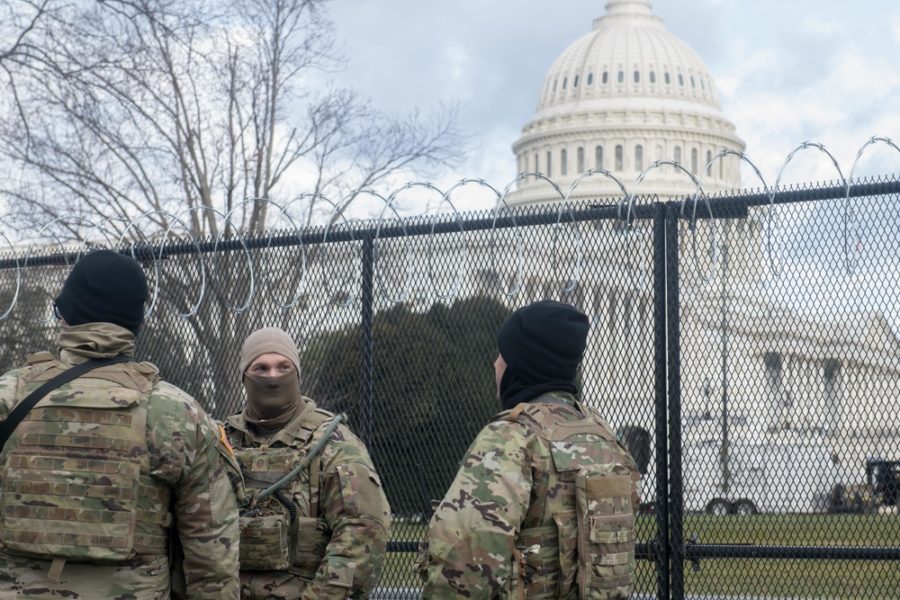Officials within the Defense Department acted appropriately and reasonably in reacting to the Jan. 6 insurrection at the U.S. Capitol, a DOD inspector general’s report found, determining that they “did not delay or obstruct” a response to the U.S. Capitol Police’s request for assistance.
The Nov. 18 report, however, does include a dozen recommendations for the Pentagon to consider to better its defense support of civil authorities, ranging from clarifying chain of command issues to better communication equipment to more planning and training.
The inspector general’s office interviewed 44 witnesses as part of its probe, including then-acting Defense Secretary Christopher C. Miller, then-Secretary of the Army Ryan C. McCarthy, Chairman of the Joint Chiefs of Staff Army Gen. Mark A. Milley, Chief of Staff of the Army Gen. James C. McConville, and head of the National Guard Bureau Gen. Daniel R. Hokanson.
The report was ordered Jan. 15 in the wake of the insurrection, which saw hundreds of people breach the U.S. Capitol attempting to disrupt the certification of Electoral College results and overturn the results of the 2020 presidential election.
The riot, which resulted in U.S. Capitol Police officers being overwhelmed and beaten and one protestor being shot, sparked outrage—and questions as to why it seemed to take so long for the National Guard to deploy and restore order.
In March, Maj. Gen. William J. Walker, commanding general of the D.C. National Guard, testified that the Defense Department took more than three hours to approve a request for the D.C. Guard to deploy to the Capitol.
The inspector general’s report, however, states that when Walker made the request, he “could not clearly articulate to his staff what the [Capitol Police] specifically needed,” leading to McCarthy heading to the Metropolitan Police Department to coordinate with D.C. Mayor Muriel Bowser directly.
Based on witness testimony, the IG concluded that “a chaotic and confusing situation” unfolded that affected the key conference call during which the U.S. Capitol Police Department requested DOD assistance, resulting in subsequent confusion that took time to clear up.
On top of that, the D.C. National Guard “is not an emergency response organization,” and military leaders are trained to plan out operations with key details instead of simply sending troops “into an uncertain situation as they become available,” the report states.
Those conclusions led to the IG’s finding that Pentagon leaders’ actions Jan. 6 were “appropriate, supported by requirements, [and] consistent with the DOD’s roles and responsibilities.”
Still, the inspector general recommended that the DOD review and update its Defense Support of Civil Authorities policy and guidance concerning U.S. Northern Command’s role in providing support to civilian authorities in and around the D.C. region, as well as command and control of the D.C. National Guard, including an operational commander for Defense Support for Civil Authorities (DSCA) matters. The IG also recommended integrating DOD’s command and control with civilian authorities.
In addition to command and control, the department can plan and train better for such situations, the report concluded, from codifying the process for other agencies to request DOD for DSCA issues, to forming contingency plans for DSCA situations, to conducting training for how to submit requests for support.
The D.C. National Guard should also refine its process for selecting and certifying individuals to serve on its Quick Response Force, noting that “members assigned to the QRF were not sufficiently trained to conduct high-intensity civil disturbance operations such as the situation presented on Jan. 6, 2021.”
Finally, D.C. National Guard personnel should be issued and trained on proper communications equipment, the report states, noting that much of the communication that occurred Jan. 6 happened over personal cell phones.
